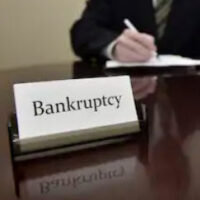Can My Business File for Chapter 13 Bankruptcy?

If you own a small business and you are considering a reorganization bankruptcy, you might have started exploring both Chapter 11 and Chapter 13 bankruptcy. In looking into these forms of reorganization bankruptcy, you may have realized that Chapter 11 bankruptcy is significantly more complicated than Chapter 13 bankruptcy and tends to cost significantly more money — both in terms of initial filing fees and costs during the ongoing bankruptcy case. As such, you might be wondering: Can my business file for Chapter 13 bankruptcy? In short, Chapter 13 bankruptcy is not for businesses and is only for consumers. However, there is a kind of loophole of sorts if your business is a sole proprietorship, and you may be able to file for Chapter 13 bankruptcy. Yet even if you are not eligible for Chapter 13 bankruptcy, your business may be eligible for Subchapter V bankruptcy, which is simpler and less complex than a traditional Chapter 11 bankruptcy for businesses.
A West Palm Beach bankruptcy attorney at our firm can tell you more about reorganization bankruptcy options for businesses, and we can explain the circumstances under which a business might be able to consider Chapter 13 bankruptcy.
Sole Proprietorships Might Be Able to Take Advantage of a Chapter 13 “Loophole”
Chapter 13 bankruptcy is a type of consumer or individual bankruptcy under U.S. bankruptcy law. As such, it is not for businesses. When a business wants to file for reorganization bankruptcy, it needs to turn to Chapter 11. However, there is a kind of “loophole,” or “workaround” for sole proprietorships. How does this work? When a business owner forms a sole proprietorship, the business owner and the sole proprietorship are not distinct entities (unlike business owners in partnerships, limited liability companies, or corporations, for example). As such, when a sole proprietorship files for bankruptcy, the individual’s debts and assets are also considered. And, vice versa, when a business owner of a sole proprietorship wants to file for a personal bankruptcy, all of the business assets and debts will be considered as part of the bankruptcy case.
What this means is that a sole proprietorship technically can file for Chapter 13 bankruptcy. Yet the bankruptcy case will need to include all of the business property as well as the individual business owner’s (i.e., the sole proprietor’s) property. This intertwining of business and personal property is the same whether you are thinking about a reorganization bankruptcy or a liquidation bankruptcy.
Subchapter V is an Option for Many Smaller Businesses
Even if your business is not a sole proprietorship, but it is quite small and Chapter 11 seems extremely daunting and complex and costly, your business could be eligible for a Subchapter V bankruptcy. This is a subchapter of Chapter 11 designed specifically for small businesses.
What does your business need to do to be eligible? At least 50 percent of debts must be business debts, and there is a $7.5 million debt limit.
Contact a West Palm Beach Bankruptcy Attorney
In general, Chapter 13 bankruptcy was designed for consumers, and it is a form of consumer bankruptcy when a consumer wants to reorganize or restructure debts. However, as we have discussed above, there are situations in which sole proprietors may be able to file for Chapter 13 bankruptcy in order to reorganize both business and personal debts. You should discuss the specific details of your situation with an experienced West Palm Beach bankruptcy lawyer at Kelley Kaplan & Eller to learn more about your options. We have years of experience representing businesses and individuals in bankruptcy cases, and we can begin working with you today.
Sources:
law.cornell.edu/uscode/text/11
uscourts.gov/services-forms/bankruptcy/bankruptcy-basics/chapter-13-bankruptcy-basics



